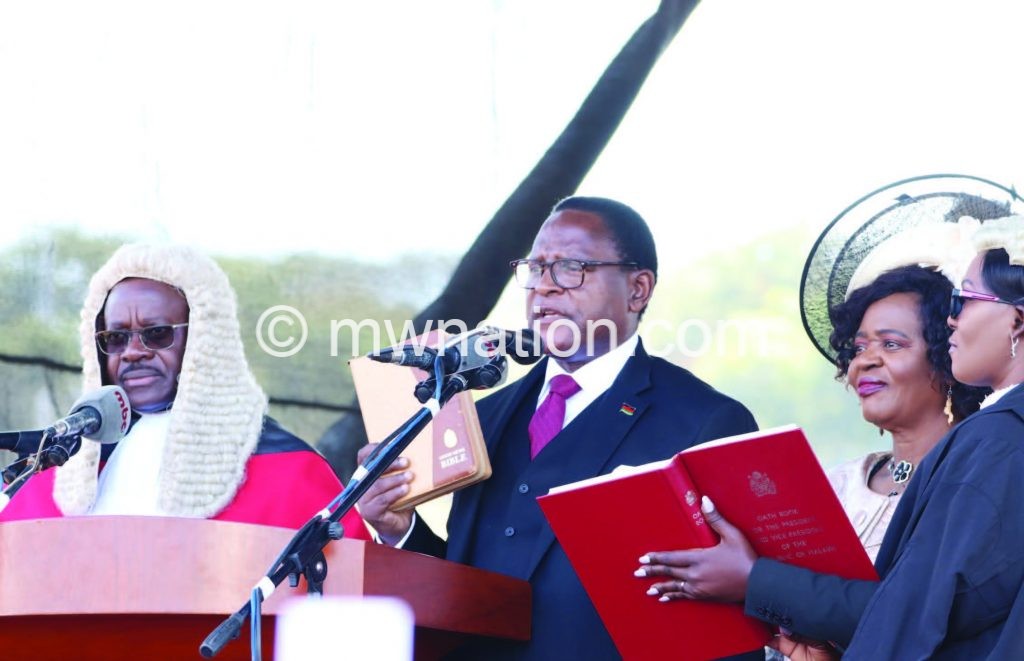Chakwera firm on trimming powers
President Lazarus Chakwera in his radio national address last night reaffirmed his commitment to reducing presidential powers.
Chakwera asked for support from several stakeholders to realise the goal he has set.

Said the President in his radio address statement: “But I think you know by now that I do not say something unless I mean to do it. But to get this done, I need your support. The reduction of presidential powers is a collective effort.
“As such, it is important that we all understand what these powers are. In summary, the presidency has four kinds of powers. The first category of powers a President has is positional.”
The President said in his jurisdiction, there are certain positions and offices that are reserved for the President alone such as the positions of Head of State, Head of Government, and Commander-in-Chief of the Armed Forces.
However, he said he believes it was time a review was made on the merits of having the President also occupy an office such as chancellor of a public university.
“This is a relic from a bygone era that we need to part with, for I know of no free country in which the State President is put at the helm of an educational institution that exists to produce free thinkers.
“That is one example of positional powers that need to be revisited. The second category of powers a president has is executive. This has to do with certain decisions that are reserved for a president to make. It is my view that there are too many decisions made by a president, so I mean to reduce that,” Chakwera said.
He said having a presidency that makes too many decisions has created problems for the country for a long time.
“This is a mistake we must stop making at a national level. There must be decisions that when made by Parliament are final, and even where the President has the power to veto such decisions, he should no longer be allowed to sabotage the governance framework by sitting on the decision.”
This was in direct reference to bills passed in Parliament but would require the President to assent to them and before the June 23 fresh presidential election, former president Peter Mutharika was accused of frustrating the amendment of some electoral laws.
“The third category of powers a president has is that of appointments. From the Judiciary, to the Legislature, to the Executive, all the way to constitutionally mandated institutions designed to operate independently, the boards of statutory corporations, foreign embassies, and traditional leaders, we have the anomaly of having all of them look to the president as the appointing authority,” Chakwera said.
The President said it is not possible for a President to be the appointing authority of many offices without at some point coming face to face with a conflict of interest.
Within cultural change towards the presidency, Chakwera asked for a rethink on overlap between party and State functions to prevent abuse.
Human Rights Defenders Coalition (HRDC) chairperson Gift Trapence in an interview supported Chakwera’s stance to trim the presidential powers, saying too much powers concentrated in the presidency is the reason presidents in the past became dictatorial; hence, made grave mistakes.





